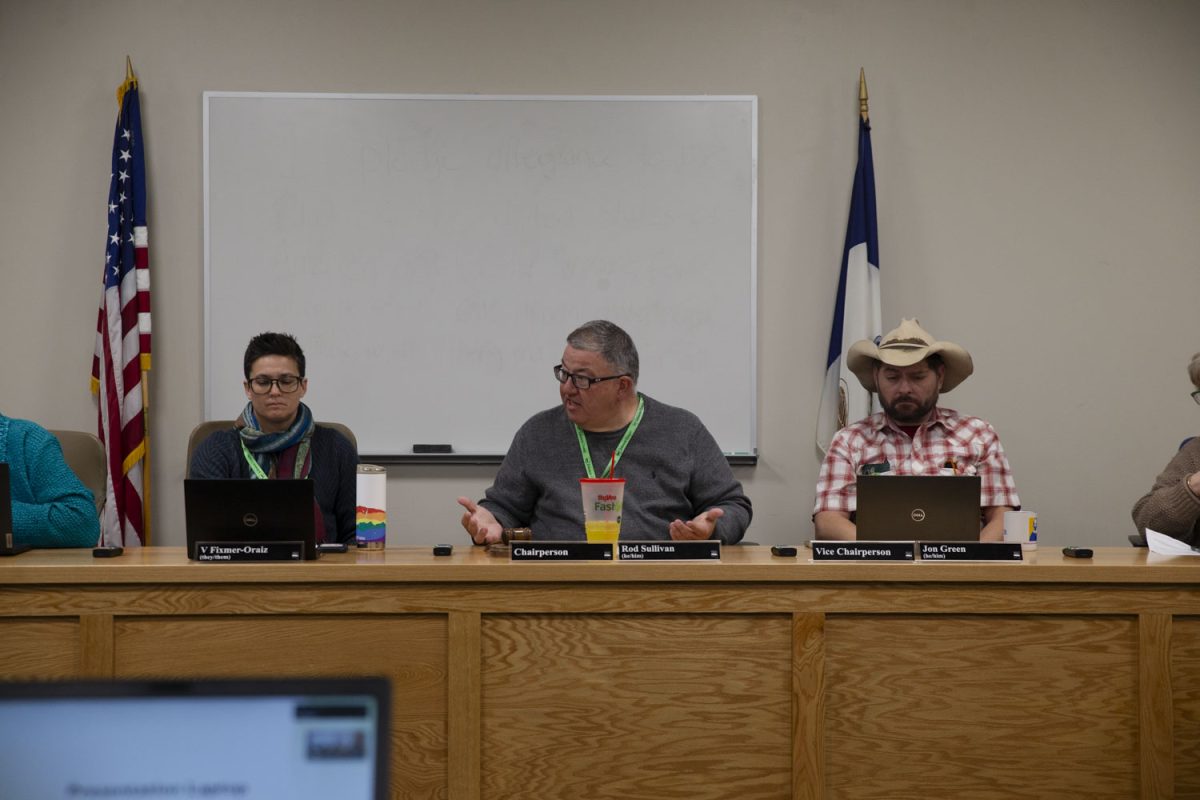Abdullah Azkalany knew something important had happened when his phone started ringing the morning of Feb. 11. Friends and family kept calling.
When the University of Iowa freshman and native of Egypt answered the phone, he got news he never thought he’d hear: Former Egyptian President Hosni Mubarak had stepped down.
“It’s a day when all Egyptians can say they’re proud they’re Egyptians,” Azkalany said. The Alexandria-native moved with his family to Cedar Rapids when he was 5, but he still has family members in Egypt.
Azkalany said he grew up listening to his grandfather, who served in the military with Mubarak, tell horror stories about the president, and he expected Mubarak’s son to assume office when the elderly leader died.
“[Young Egyptians] knew that if something happened, it would be our generation to do it,” he said. “I really wish I was there … especially when it was in full force.”
The human physiology and pre-med major said he began studying medicine so he could return to Egypt one day and help improve “some of the worst health care in the world.”
Last week, even students without direct ties to Egypt were caught up in the excitement.
UI political-science Professor Vicki Hesli said students enrolled in her Introduction to Politics in the Muslim World course were energized and often immersed in discussions of the protests.
“If they had their way, we would spend every minute of every class talking about Egypt,” she said.
Many students become fascinated with the region because of its rich culture, historical significance, and political importance, she said. The extensive coverage of the protests intensified an already blossoming interest in Egyptian studies.
While many American college students were evacuated from Egypt as the demonstrations continued in recent weeks, officials with UI International Programs said they thought the events could eventually lead to more interest in the region.
“Our students are becoming much more familiar with Egypt and learning a lot about the country,” said Janis Perkins, the director of the Office for Study Abroad. “If this transition does go smoothly and there’s a stable government in place, I think there will be an increase in interest in studying in Egypt.”
And Mubarak’s removal would not lure Egyptian students away from studying in the United States, she said.
International Programs Dean Downing Thomas said he believed greater stability would instead increase interaction between Egypt and the U.S.
“I think generally what we see is that [in] democratic societies there’s more exchange, more desire, more openness, more opportunities for both students and also faculty,” he said. “This change is really good.”
In spite of the excitement and promise many find in Egypt’s future, a latent uncertainty colors the discussion of leadership and the need for direction. Gail Buttorff, a political-science graduate fellow who focuses on elections and political parties in the Middle East, said it would take time for the United States to determine its relationship with a new Egyptian government. She estimated a nine- to 12-month transition period.
“I think the question on everybody’s mind is ‘What is the next step?’ ” she said.
Though he was “ecstatic” after hearing of Mubarak’s resignation Friday, Azkalany did not hesitate to speak about the difficulties facing his home country. Speaking about the health-care system and the political situation, he echoed Buttorff’s question in a sobering moment of acknowledgment.
“A lot of the real work is yet to come,” he said.






